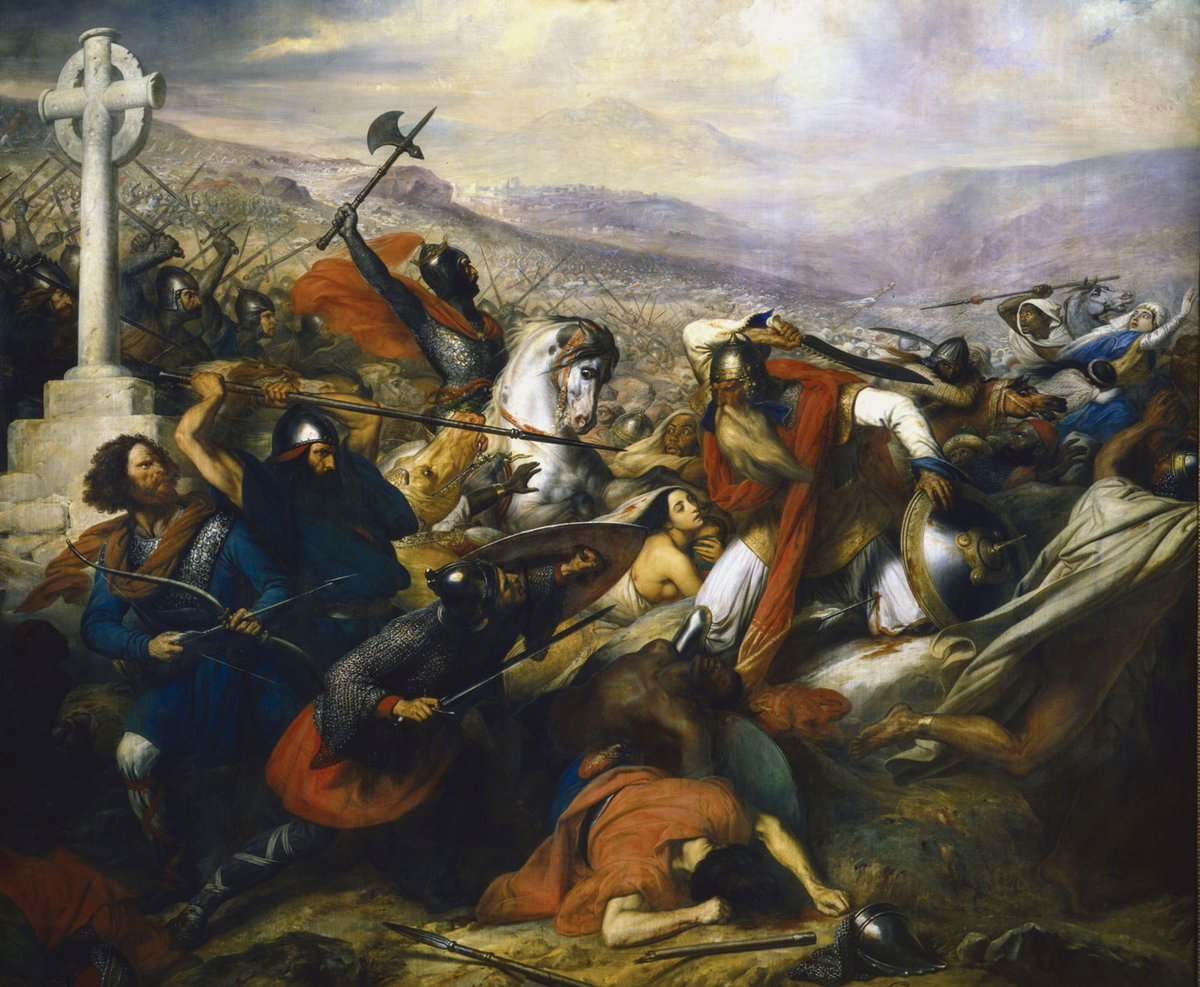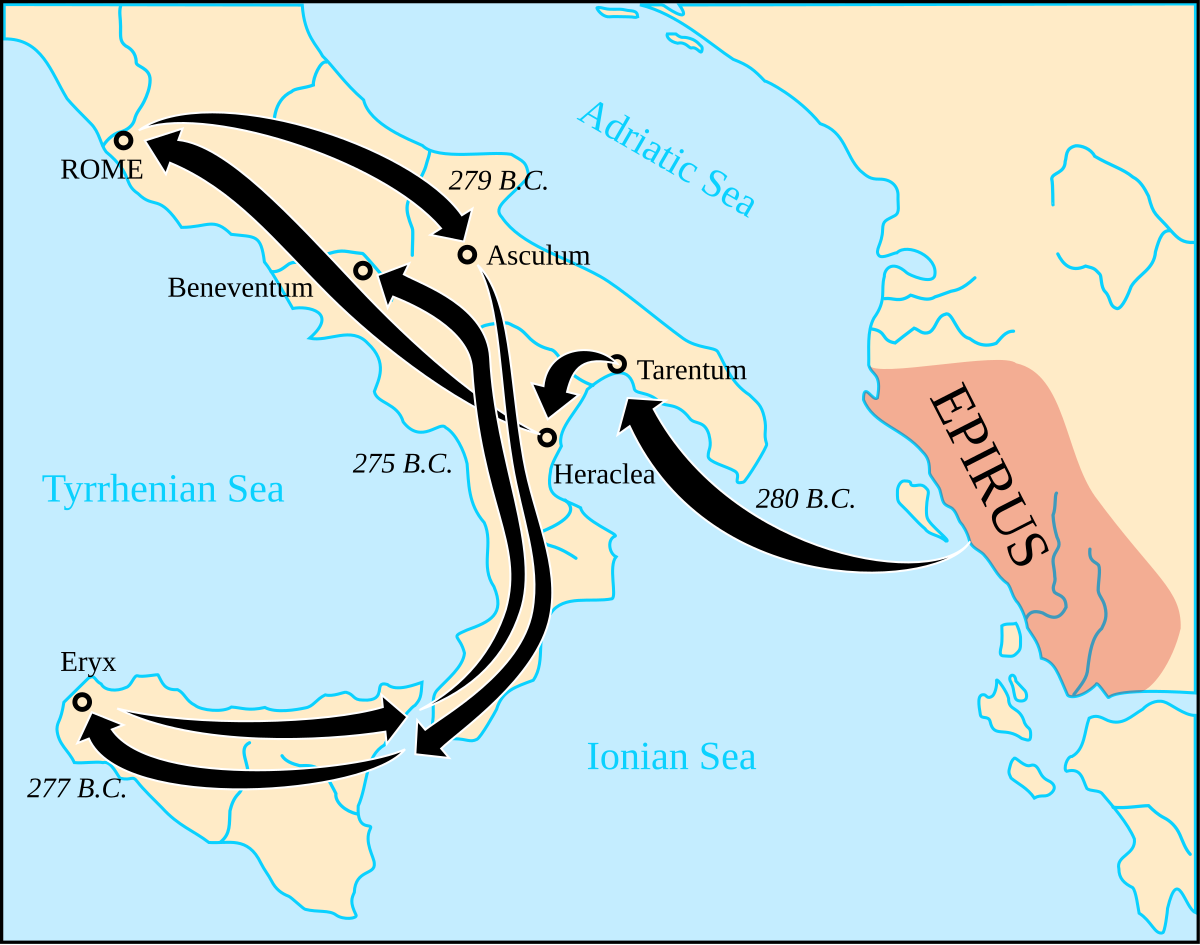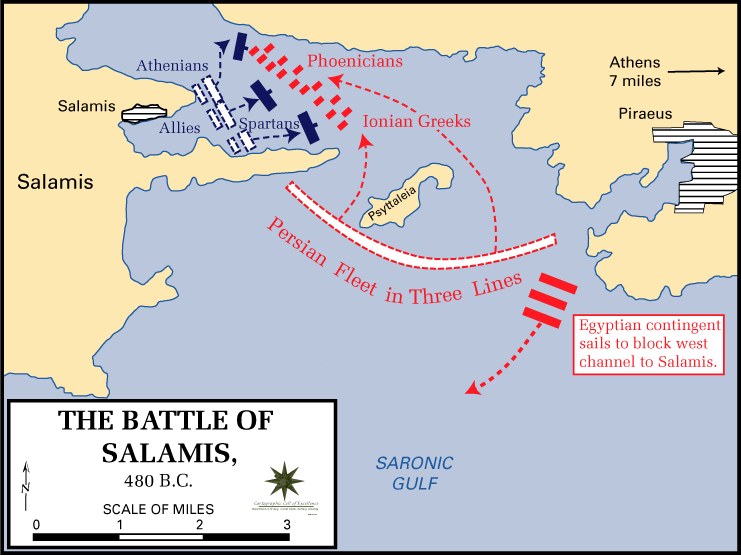I'm going with the Battle of Tours. Had it gone the other way, mainland Europe might have become entirely Islamic.
Announcement
Collapse
No announcement yet.
What was the most important battle in history?
Collapse
X
-
What was the most important battle in history?
The genesis of the "evil Finn" concept- Evil, evil FinlandTags: None
-
agreed.Originally posted by Serb:Please, remind me, how exactly and when exactly, Russia bullied its neighbors?
Originally posted by Ted Striker:Go Serb !
Originally posted by Pekka:If it was possible to capture the essentials of Sepultura in a dildo, I'd attach it to a bicycle and ride it up your azzes.
-
I'm opting for Liegnitz in 1241.
Partly because it was the last big battle between European forces and the Mongols in Central-Eastern Europe (other than the destruction of King Bela's forces in Hungary at the Battle of the River Sajo), and partly because if the Mongols had over-wintered in Hungary or Poland or Bohemia, and started to campaign afresh in the Spring, then Europe from France to Italy would have been a rich and tempting target.
The Italian Renaissance was yet to get under way and the resurgence of science and philosophy in Paris would be aborted if the Mongols headed West:
The Grand Master of the Templars wrote to King Louis IX of France, saying of the battle, "The Tartars have destroyed and taken the land of Henry Duke of Poland, ...with many barons, six of our brothers, three knights, two sergeants and five hundred of our men dead." King Louis, preparing to go to central Europe to fight the Mongols, told his mother, Queen Blanche, that either they would send the Tartars back to hell, or the Tartars would send them to Paradise. His statement was a play on the Latin term for hell, Tartarus, and helped fix the Mongols' nickname among the Europeans.
The Grand Master's missive to Louis also stated that no army of any significance stood between the invaders and France. That was no exaggeration.
Possibly then: no southern Renaissance in Italy, no aid from France for Spanish Christians, no French or Iberian Atlantic empires...Vive la liberte. Noor Inayat Khan, Dachau.
...patriotism is not enough. I must have no hatred or bitterness towards anyone. Edith Cavell, 1915
Comment
-
I would include the Battle of Asculum (279 BC)
Had it been more decisive in favor of Pyrrhus he probably had been able to convince some of the italian tribes to revolt against rome and had been able to march directly against rome.
As a result (worst case for rome) italy could have been included into magna graecia (and subsequently perhaps been included into the carthagian empire when Carthago grew stronger) with no roman empire ever evolving.
Would have changed a lot of things in history (including the emergence of christianity)Tamsin (Lost Girl): "I am the Harbinger of Death. I arrive on winds of blessed air. Air that you no longer deserve."
Tamsin (Lost Girl): "He has fallen in battle and I must take him to the Einherjar in Valhalla"
Comment
-
Re: What was the most important battle in history?
Unless it was really just a big raid, as is widely thought now.Originally posted by Lazarus and the Gimp
I'm going with the Battle of Tours. Had it gone the other way, mainland Europe might have become entirely Islamic.
http://en.wikipedia.org/wiki/Battle_of_tours"A person cannot approach the divine by reaching beyond the human. To become human, is what this individual person, has been created for.” Martin Buber
Comment
-
Instead let me suggest Talas. There seems to me as much contemporary evidence that it resulted in central Asia becoming muslim rather than Sinitic as there is for Tours keeping europe Christian.
And even if thats false, and there was no geopolitical effect, it resulted in papermaking being brought from China to the Middle East, and ultimately the West, with a huge impact on printing, literacy, etc.
For more modern battles - Tannenberg. If the Germans lose, as could easily have been the case, WW1 may end much earlier, resulting in saving millions of lives, no Bolshevik revolution, no quick fall of the Ottoman empire (and thus profoundly different ME) possibly US remaining deeply apart from Europe much longer, weaker pacifist and internationalist movements as well as no fascism or Nazism (or at least a very different fascism), profound differences in interwar culture, etc,
I will leave out the obvious turning point battles in US history, Saratoga, Baltimore, Antietam."A person cannot approach the divine by reaching beyond the human. To become human, is what this individual person, has been created for.” Martin Buber
Comment
-
Thermopylae?THEY!!111 OMG WTF LOL LET DA NOMADS AND TEH S3D3NTARY PEOPLA BOTH MAEK BITER AXP3REINCES
AND TEH GRAAT SINS OF THERE [DOCTRINAL] INOVATIONS BQU3ATH3D SMAL
AND!!1!11!!! LOL JUST IN CAES A DISPUTANT CALS U 2 DISPUT3 ABOUT THEYRE CLAMES
DO NOT THAN DISPUT3 ON THEM 3XCAPT BY WAY OF AN 3XTARNAL DISPUTA!!!!11!! WTF
Comment
-
I don't want to pinpoint any specific battle, but I think that the most important one must come from that group of battles which allowed the Greek or Roman civilizations to survive. Salamis and Marathon are certainly up there. Also the Battle of the Caudine Forks in the sense that the entire Roman army could be destroyed there."Beware of he who would deny you access to information, for in his heart he dreams himself your master" - Commissioner Pravin Lal.
Comment
-
In general the more ancient the battle, the more consequences it must be having today, thus, not Thermopylae, which was a loss, but Salamis, which was a win for Athenians and allies:
-- What history has taught us is that people do not learn from history.
-- Programming today is a race between software engineers striving to build bigger and better idiot-proof programs, and the Universe trying to produce bigger and better idiots. So far, the Universe is winning.
Comment
-
Pardon my provincialism, but I vote for Yorktown.
The United Colonies were on the brink of collapse. (When the messager brought Congress word of the victory, they voted to pay him his expenses. Then they learned the Treasury was EMPTY, so they passed the hat and took up a collection among themselves.)
The victory at Yorktown was like the cliche boxing movie, where the hero gets up off the canvas at the last minute to knock out a much bigger opponent.
But more importantly, the victory of the Americans set off a series of republican revolutions from Terra del Fuego to the Ural mountains. Some, like Bolivar's, were successful. Others failed. But the result was the spread of republcanims throughout the Americas and Europe.

Comment
-
The earlier the battle, the greater the importance;
The more lasting the effects, the greater the importance;
The more people involved, the greater the importance.
Therefore, I pick the twin battles of Salamis and Platea. Losing either one would mean the end of Greece, no Greco-Roman civilization, no renaissance, no enlightenment, no glorious revolution, no declaration of independence, and no industrial revolution. The world would be very very different.Last edited by One_more_turn; July 30, 2007, 00:21.
Comment
-
I agree it was a really important battle, but I don't know if it would have meant the end of Greek civilization. Persians generally didn't overturn the foreign political scene. All they wanted were the famous water and earth. Persians only needed troops and money from their subjects. Other than that they wanted peace, so in that respect Greece would look entirely different if united under the Persians. In my opinion they would have become a considerable strength vis-à-vis the Romans because they would not have continued pillaging, ravashing and destroying eachother. (I am pretty convinced the Romans would have conquered them anyway though).Originally posted by One_more_turn
The earlier the battle, the greater the importance;
The more lasting the effects, the greater the importance;
The more people involved, the greater the importance.
Therefore, I pick the twin battles of Salamis and Platea. Losing either one would mean the end of Greece, no Greco-Roman civilization, no renaissance, no enlightenment, no glorious revolution, no declaration of independence, and no industrial revolution. The world would be very very different.
Look at the western coast of Asia Minor under the Persians. They were just as flourishing if not more than mainland Greece. Aristagoras of Milete only sparked the Ionian revolt cause he was in a tight situation, and it seemed the only viable option to save his ass.
In general ancient empires almost never tried to impose their ethnicity on other regions. The Roman colonies in the empire for example didn't suffice for that purpose (and that wasn't even their immediate intention anyway). This is because in those ancient times imposing regulations was in practical terms very difficult and costly, especially more so in expanding larger empires with communication going ever more slowly. Having an extensive administration imposing tight rules that don't fit in with local populations didn't work. The same thing applies to the Parthians, Carthaginians, Egyptians (in the Levant and Cyrenaeca) and others"An archaeologist is the best husband a women can have; the older she gets, the more interested he is in her." - Agatha Christie
"Non mortem timemus, sed cogitationem mortis." - Seneca
Comment




Comment